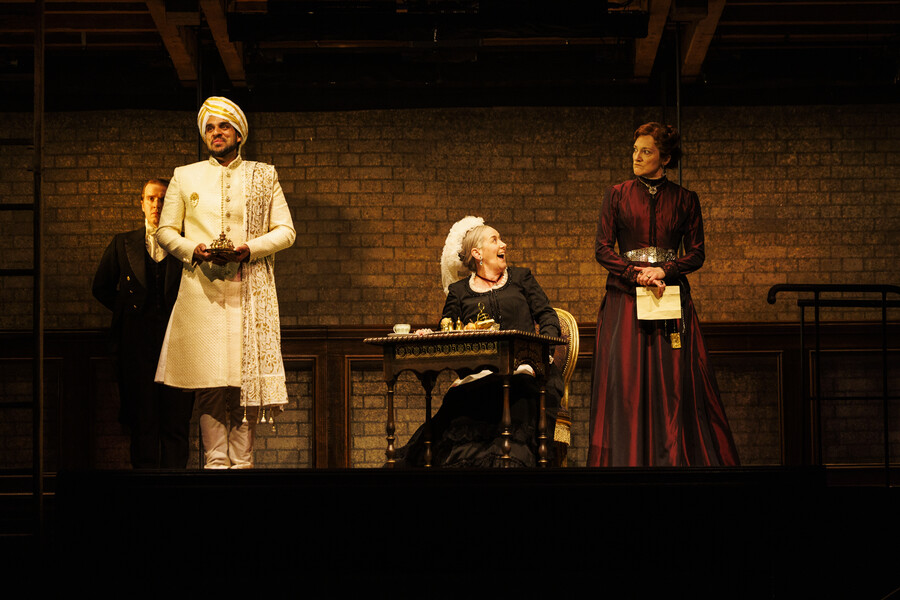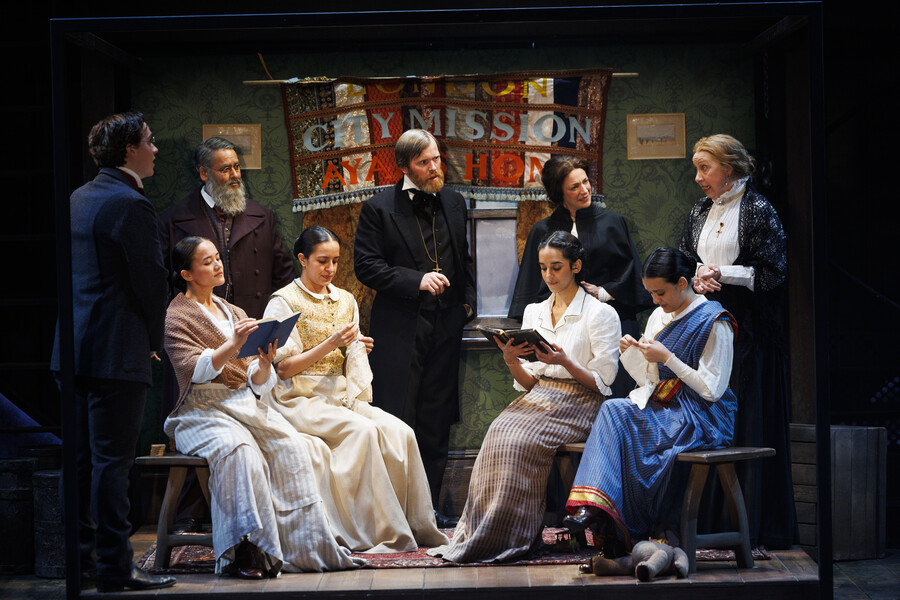
7 July – 18 November
Giving the British Empire a good kicking is the current trend amongst writers of historical fiction and represents a marked contrast to attitudes a few decades back when jolly tales from the Raj of such ilk as Jewel in the Crown graced our television screens. Whilst Tanika Gupta chooses not to avoid the usual tropes – the ruling British seen, in some cases through a lens of caricature and as conforming to the stereotypes that stand in for individuation – she does bring a fresh perspective to an aspect of Victorian Britain that would have been significant for the families of the Imperial bureaucracy. At the same time she manages to cram in whole swathes of Anglo-Indian history in Britain with the appearances of Gandhi, Jinnah and notably the first Asian MP, Dadabhai Naoroji who is given a tub thumping and nuanced portrayal by Simon Rivers.
The Empress in question is, on the one hand, of course Queen Victoria (Alexandra Gilbreath), whilst on the other it is the central character of Rani (Tanya Katyal) who is referred to as, ‘my empress’, by a diffident Hari (Aaron Gill) who befriends her during the passage from India to England. Rani is an ayah, a nanny employed by British families to look after their children whilst in India. On arrival in England she is promptly dismissed by her heartless and duplicitous employer and then finds herself in a spiral of exploitation and abuse until she meets up with Naoroji whom she meets whilst a resident in a refuge for Indian women established by British philanthropists.
The play proceeds by a series of juxtapositions: the celebrated episode of Victoria’s favoured servant and teacher, Abdul Karim (Raj Bajaj) who rises, in the teeth of bitter opposition from the royal household, to an exalted position in the affections of the Queen Empress, set against the Tess d’Urbeville style progress of Rani. Ms Gilbreath as Victoria is a down-to-earth and forthright character, at one moment agog at the prospect of a ‘present’ that turns out to be Karim, whilst on another taking him into her employ almost in defiance of court objections. She would seem to be the only person in the empire free of prejudice. Again she is amusingly quite up for learning of the salacious court chat about her and Karim whilst being prepared to stamp the foot of imperial authority.
Ms Katyal is sure-footed in her journey from distraught waif, alone and friendless in a strange country, to confident young woman in charge of her own destiny. In doing so she not only highlights the historical plight of many Indian women during the Raj, but also the stories of those who today find themselves, through the many causes of displacement, friendless in a foreign land.
★★★★☆ Graham Wyles 19th July 2023

Photo credit: Ellie Kurttz


